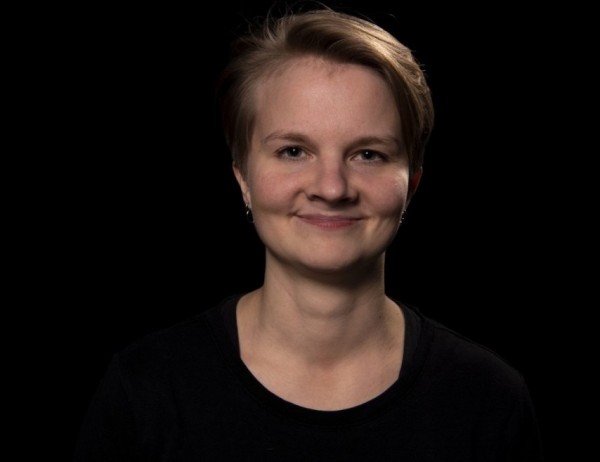Helsinki-based Icebreaker.vc invests in promising angel and pre-seed stage Finnish, Swedish and Estonian tech companies. Their first fund started in 2017 and has invested in 38 companies. Of these, 10 have raised 1M€-5 M€ in follow-on investment rounds from some of the most successful investors in the world. As of November, the company’s second fund, having had its first closing at 5 M€ last April, has invested in 10 companies. The targeted investment pace is 20 deals per year.
“We are looking for software-driven companies that have strong technology expertise and capabilities to become global winners. The founders need not to be experienced entrepreneurs but rather people, who have encountered a problem and have set out to develop a solution for it. The team’s domain expertise and deep knowledge of their field increases the chances of success”, Luukkainen says.
Supporting the founders’ well-being
Icebreaker is also a community of hundreds of professionals. The community offers a network of potential team members, clients, and advisors to anyone wishing to found a startup. Another distinguishing factor is Icebreaker’s emphasis on the personal growth of the portfolio companies’ founders.
“As far as I know, we are the only VC firm in the region for which the mental and physical well-being of the founders is an important area for development. The Icebreaker team is very committed to this mission”, Luukkainen explains.
“I know from my own experiences in startups, how much pressure is put on the founders during a funding round, for example. Especially for early stage startup founders without much experience, an active investor’s hands-on help can be crucial to the rise or the fall of the company”, she adds.
Icebreaker also encourages the founders to work smarter, not harder, and to share responsibility. Icebreaker also gives practical advice on choosing co-founders – they do not need to be one’s best friends.

Mari Luukkainen, a growth hacker and the Head of Growth of Icebreaker.vc
Growth hacking is a tool for the brave
Luukkainen believes adopting growth hacking is essential for the whole Finnish startup scene and all companies that want to grow into international success stories.
“To be able to compete with global companies such as Facebook, Uber, and Airbnb, we need to be able to learn and iterate as fast as they do. They all are utilizing systematic test iteration (growth hacking)”, she points out. “It’s commonly mistaken for being only a model for digital marketing, but it can be used for anything you can measure with data, such as sales, recruiting, product development and customer care processes.”
“Growth hacking is best suited for startups, because testing always contains the possibility of failing, and it takes lots of courage to accept failure. In growth hacking, we embrace failures as possibilities to learn and to change course. The sooner we learn, the better”, Luukkainen continues.
Hands-on growth hacking experience – the Freska story
A good example of the benefits of growth hacking is the success story of Freska, a home cleaning startup that Luukkainen used to work for. During her time as the Head of Growth, Freska grew from 700k€ to 13M€ annual revenue in two years and expanded to Sweden and Norway.
“I was responsible for growing the company in any way possible. I did customer acquisition, but also data iterative cleaner recruiting and product development. During those years I was convinced that growth should be a cross-functional process. The growth lead’s role in the company is central and they should have quite a high mandate near CEO”, she says.
Coaching founders and training growth hackers
After leaving Freska, Luukkainen wanted to spread the happy message of growth hacking wider and more efficiently and ended up as the Head of Growth for Icebreaker. There, she started to coach founders and urged them to start growth hacking.
“Everyone agreed that systematic testing and learning are good ideas. However, the founders usually have a lot on their plate – the required systematicity can be too much for them. As the method is relatively easy to learn, I got the idea of training some growth hackers myself”, Luukkainen tells.
And that is exactly what she did. The first group of growth hacking trainees turned out so good that this year (2020) Luukkainen has trained 7 groups more. This was made possible by Icebreaker’s investments to companies that got excellent results with growth hacking.
Judging from all this, growth hacking is in Finland to stay and lots of fastgrowing startups in Finland continue to emerge in the near future.
Read more: How to hack growth? 4 points by Mari Luukkainen from Icebreaker.vc
Mari Luukkainen
Who she is: Mari Luukkainen, 35, Head of Growth at Icebreaker.vc
What she does: Builds growth teams to accelerate the growth of early stage startups, including training the people and implementing the team in the company.
Education: Barely achieved BBA, mostly self-learning for years.
Before Icebreaker: Affiliate marketing, consulting, Head of Marketing/Growth at several startups.
Why Icebreaker: During her times at startups, she never received any support from investors besides money. She thinks that the hands-on help of an active investor, to which Icebreaker’s team is very committed, can be the decisive factor to the startup’s success or failure, as well as the well-being of the founders.
Blogs: mariluukkainen.fi, mariluukkainen.medium.com
Icebreaker
What it is: A Helsinki-based venture capital firm and community founded by Lasse Lehtinen, Aleksi Partanen, Riku Seppälä and Teddie Wardi in 2016. Personnel of 12.
Funds: Fund I €20M and Fund II €85M (target size)
Investors: Tesi, pension funds, FOFs, family offices, corporates as well as seasoned entrepreneurs across Europe.
Target companies: Angel and pre-seed stage tech companies founded by domain experts in Estonia, Finland, and Sweden.
Portfolio: Lumoa, Cachet, Fixably, MVision, Selko, Flowhaven, Hoxhunt, Inscripta, Roadcloud, Tesseract, Aibidia, Cerenion among many others. MVision uses AI in radiation treatment planning for cancer, freeing up scarce resources in healthcare. HoxHunt has developed a gamified simulation for cyber attacks. Logmore has developed a logistics sensor based on dynamic QR codes and a connected cloud service, which enables more accurate and broader logistics tracking than before.
A curiosity: Icebreaker is the only fund in the region having founders’ wellbeing as one of the main objectives.
Website: icebreaker.vc




